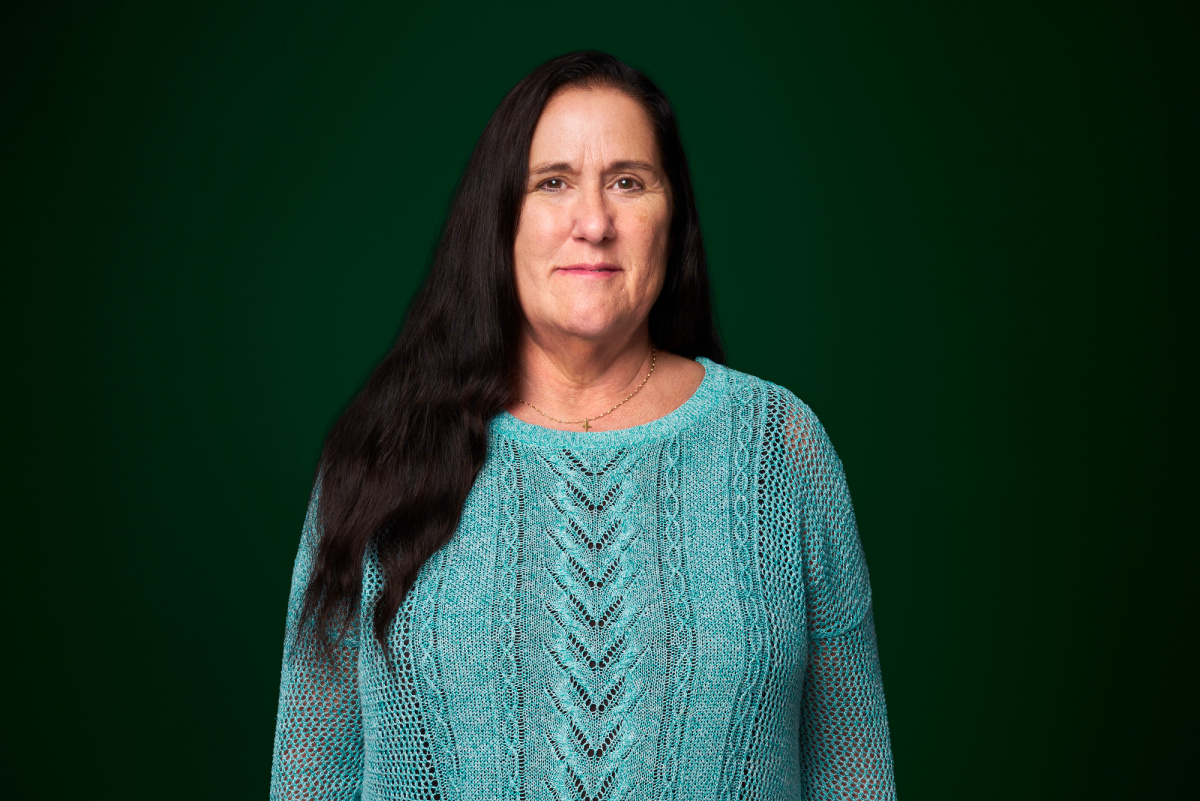Alumni Honour Award recipient brings Inuit literature to national audiences
Carmen Rojas - 23 October 2023
 Norma Dunning (’12 BA (NativeStu), ’12 Cert (IndigGov/Ptnshp), ’14 MA, ’19 PhD) has always been a writer – filling books with poetry for as long as she can remember – but it wasn’t until she became a grandmother that she considered publishing her work.
Norma Dunning (’12 BA (NativeStu), ’12 Cert (IndigGov/Ptnshp), ’14 MA, ’19 PhD) has always been a writer – filling books with poetry for as long as she can remember – but it wasn’t until she became a grandmother that she considered publishing her work.
“I thought, ‘now it’s time,’ ” she says. “It became important to me.”
Since her story collection Annie Muktuk and Other Stories hit shelves in 2017, Dunning has published at a prolific rate: she has released five books to date, with the manuscripts for two forthcoming novels completed. Her work has received critical acclaim and a number of high profile literary awards, including the 2021 Governor General’s Literary Award for fiction for Tainna: The Unseen Ones.
Most important to Dunning, her published works have given a voice to Inuit perspectives – particularly the often-overlooked experience of Inuit people who live outside of Nunavut.
“I get told all the time I’m not ‘real’ because I don’t live there and I’m not fluent in the dialect and ‘oh my goodness, your skin is far too light,’ ” says Dunning, who was born in Quebec and grew up moving frequently for her father’s military career.
“I think about the younger generations and how they can go about handling that kind of invasive questioning and having to prove themselves,” she adds. “It’s not how we measure ourselves; it’s how everyone else measures us.”
Postsecondary path
These are themes Dunning has explored through both literary and academic writing, with the two modes often influencing each other.
She began her postsecondary journey later in life as well – enrolling at the U of A once her son had started college – and wasn’t always sure she’d be able to see it through.
“Each year, I told myself if I could financially make it, I’d stay with it. And I made it,” she says, noting that she worked two or three jobs at a time and was fortunate to receive scholarship money to help her get by.
Dunning earned her BA in Native Studies in 2012 and went directly into the faculty’s MA program, where she wrote what would turn out to be a highly impactful thesis.
“My research was all based on that one question: ‘What was your mother’s disc number?’ ” she explains, referring to the Eskimo Identification Tag System the Canadian government implemented from 1941-1978.
Through the system, all Inuit people living in Canada’s Arctic were issued a small disc with a number on it, which was required to access basic services and used to monitor activities such as hunting, trapping, education and housing.
Dunning had no knowledge of the disc system until the question arose in the early 2000s when she applied to access benefits through the Nunavut Land Claims Agreement.
After researching the system and its impact for her thesis, Dunning was inspired to bring what she’d learned to a wider audience. She published a work of literary non-fiction, Kinauvit?: What’s Your Name? The Eskimo Disc System and a Daughter’s Search for Her Grandmother, in 2022. Earlier this year, the book was shortlisted for the Shaughnessy Cohen Prize for Political Writing.
“To be able to have that work have a broad audience and influence, it’s just amazing,” she says.
After completing her master’s degree, Dunning moved to the Faculty of Education to pursue a PhD through the Indigenous Peoples Education (IPE) program. Her research focused on the experience of Inuit postsecondary students living outside of Nunavut, specifically in relation to how they negotiate the limitations of land claim agreements.
During these years, Dunning was profoundly impacted by the opportunity to work with and learn from Indigenous scholars.
“What a beautiful program – an experience every Indigenous student should have,” she says. “I think what IPE does for their students is cement their identity. It’s really about you and how do you know you’re Indigenous.”
A force for change
Dunning served as an instructor in the Faculty of Education for many years, teaching students about Indigenous history and culture as an instructor for the EDU 211 course.
She has also been an active member of the literary community and mentored many up-and-coming writers, particularly during her time as the 2022 Writer in Residence at the Edmonton Public Library.
In the wider community, Dunning became known as an instrumental force in the push to convince the Edmonton Eskimos football club to change its name. While she was eventually successful, with the team announcing its change to the Edmonton Elks in 2021, Dunning admits the experience took a toll.
“I’m glad it happened, but it wasn’t easy work,” she says, describing the often violent threats she received online. “In the last year [before the name change], that was the first time I was really afraid to leave my apartment.”
A new chapter
Earlier this year, Dunning accepted a position as assistant professor in Indigenous Health Studies at First Nations University in Regina.
While she no longer calls Edmonton home, she has left a lasting impact on both the city and the U of A community, and is grateful to return to accept her Alumni Honour Award at the awards ceremony on Wednesday, Oct. 25.
“It’s beautiful to have your efforts recognized,” she says. “I never really think about awards – I’ve been fortunate to receive many, but I never get a big head about it. I’m just grateful that somebody recognizes the efforts I put forward.”